Filter results
You can narrow down the results using the filters
Audience
Publication type
Topics
Our work
Year
36 results
-
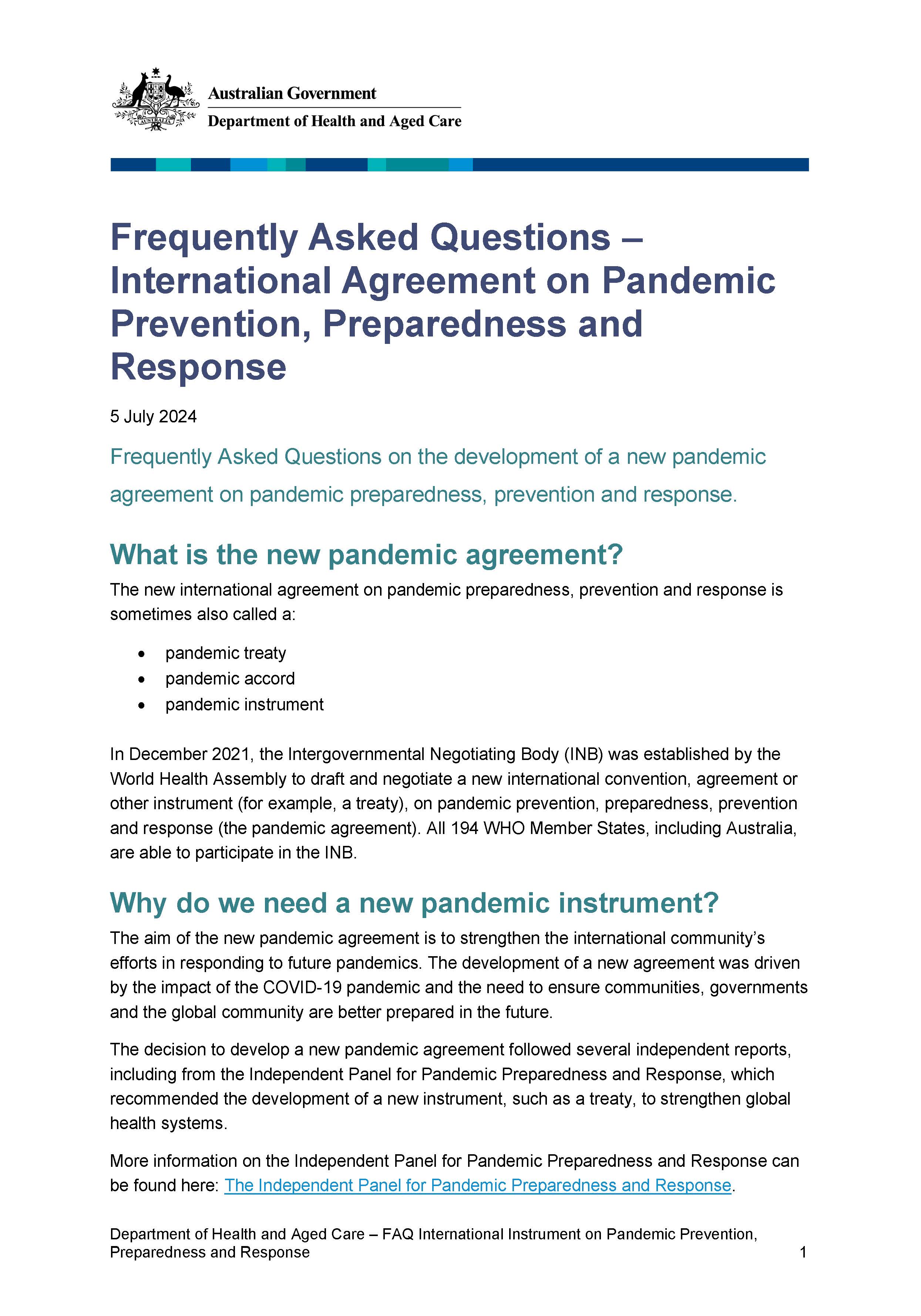
International Instrument on Pandemic Prevention, Preparedness and Response – Frequently asked questions
Frequently asked questions on the development of a new pandemic instrument (also known as the pandemic treaty) on pandemic preparedness, prevention and response. -
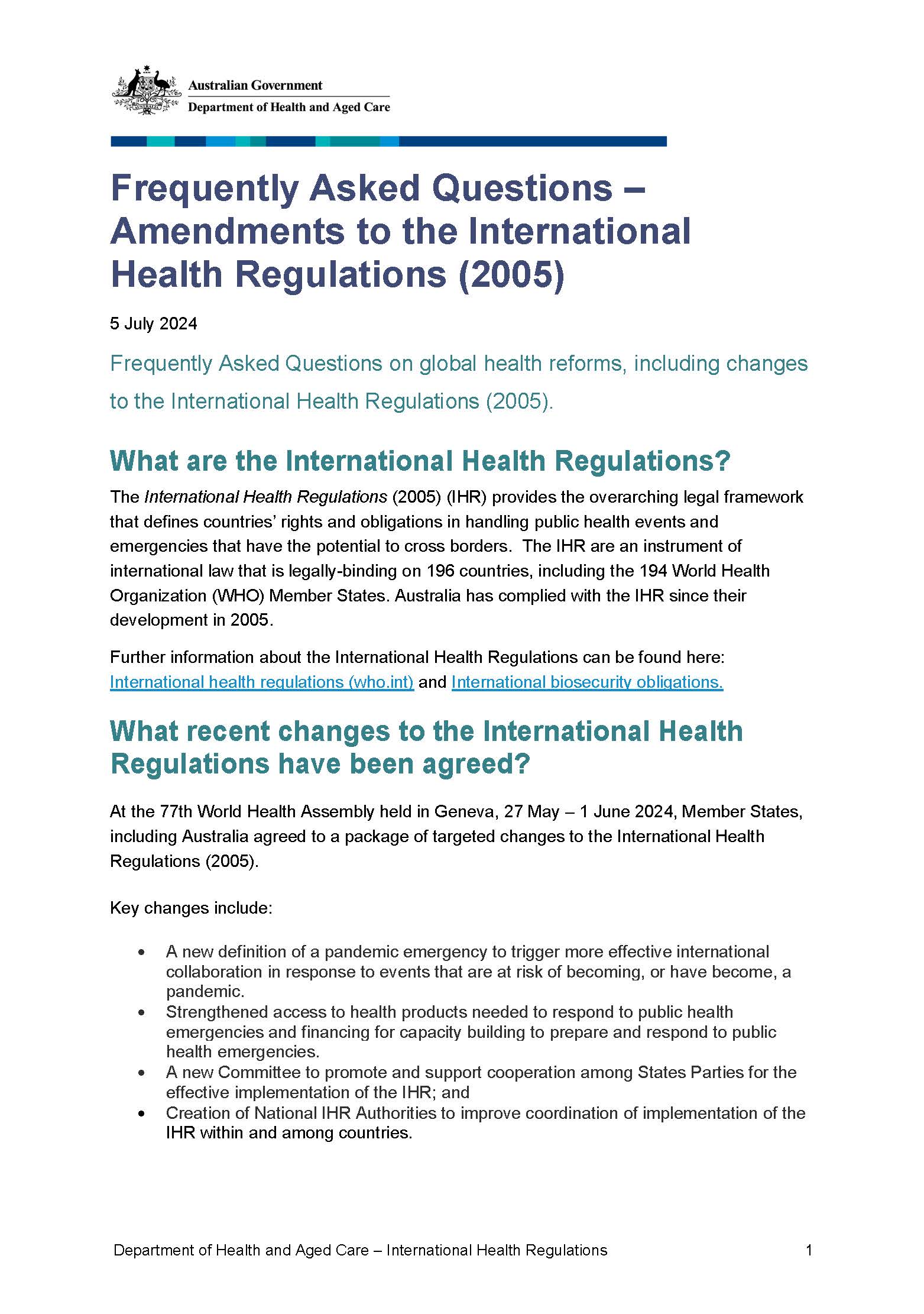
Working Group on Amendments to the International Health Regulations (2005) – Frequently asked questions
Frequently asked questions on global health reforms, including changes to the International Health Regulations (2005). -
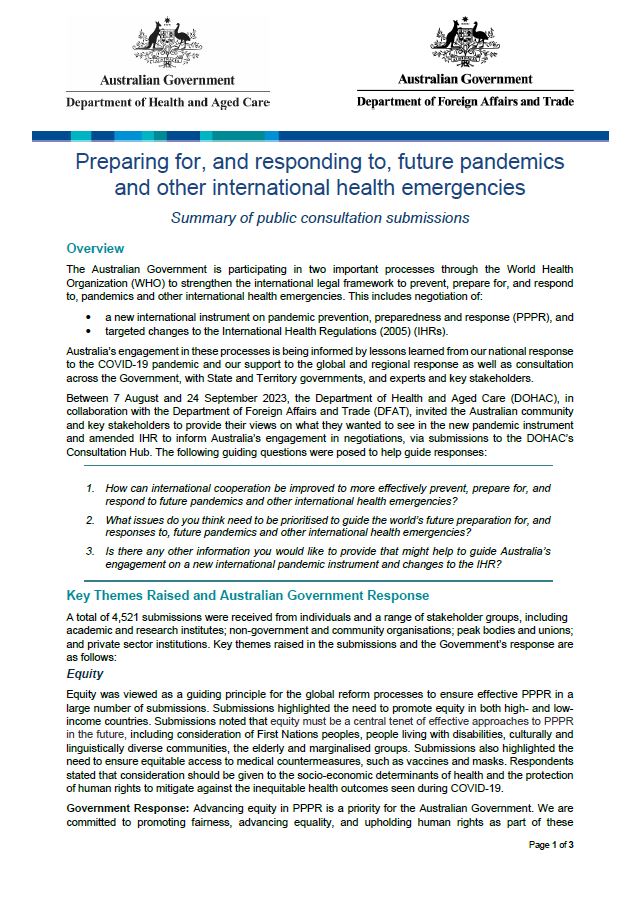
Preparing for, and responding to, future pandemics and other international health emergencies – Summary of public consultation submissions
Publication of public consultation summary report for the amendments to the International Health Regulations (2005) and pandemic treaty. -
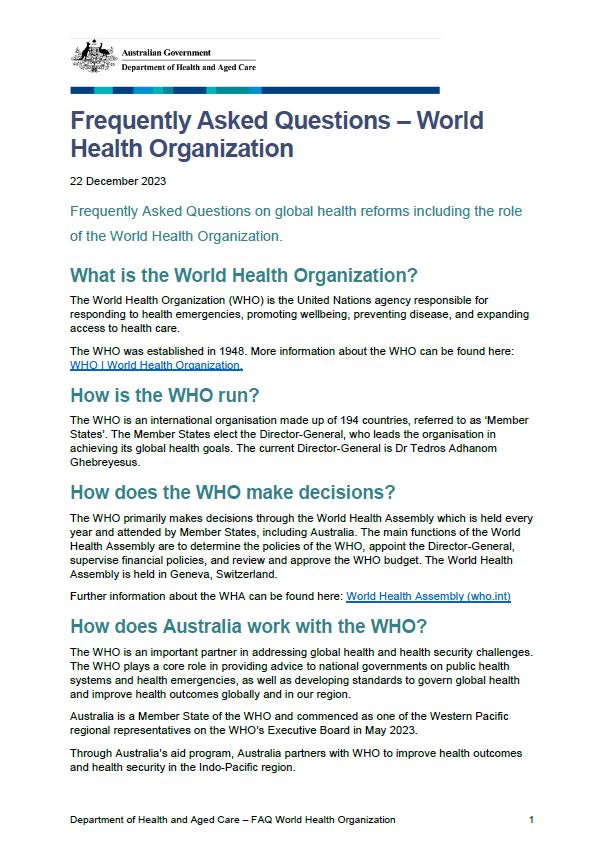
World Health Organization – Frequently asked questions
Frequently asked questions on global health reforms including the role of the World Health Organization. -
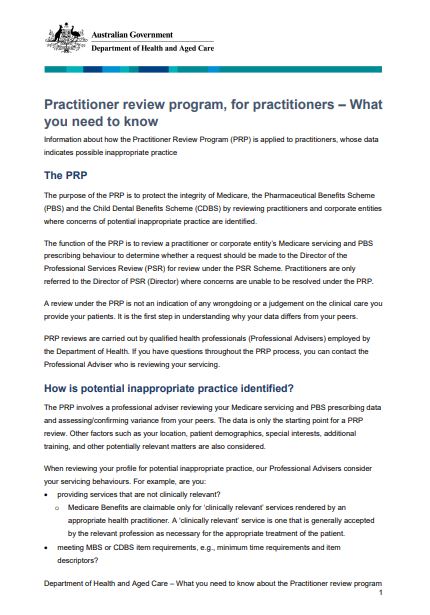
Practitioner Review Program, for practitioners – What you need to know
Information about the purpose of the Practitioner Review Program (PRP), how inappropriate practice is identified, how a PRP case is conducted, and participating in the PRP process. -
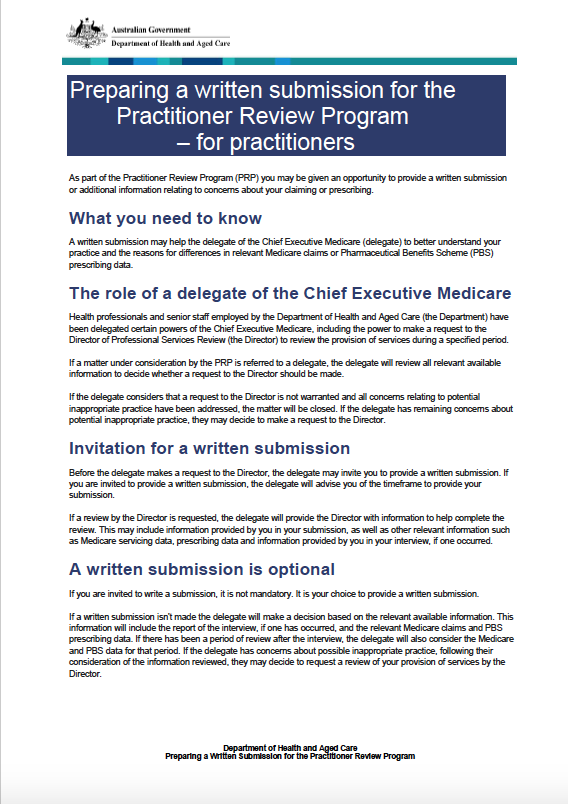
Preparing a written submission for the Practitioner Review Program – for practitioners
This fact sheet provides advice on preparing a submission. -
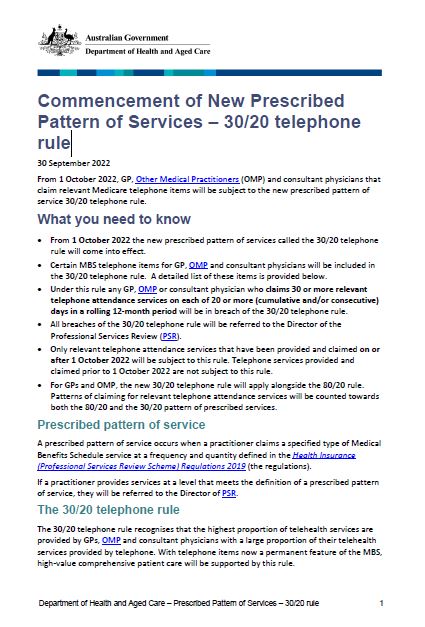
Commencement of new prescribed pattern of services – 30/20 telephone rule
Information on the new prescribed pattern of service 30/20 telephone rule, including relevant telephone attendance services. From 1 October 2022, GPs, Other Medical Practitioners and consultant physicians that claim relevant Medicare telephone items will be subject to the new rule. -
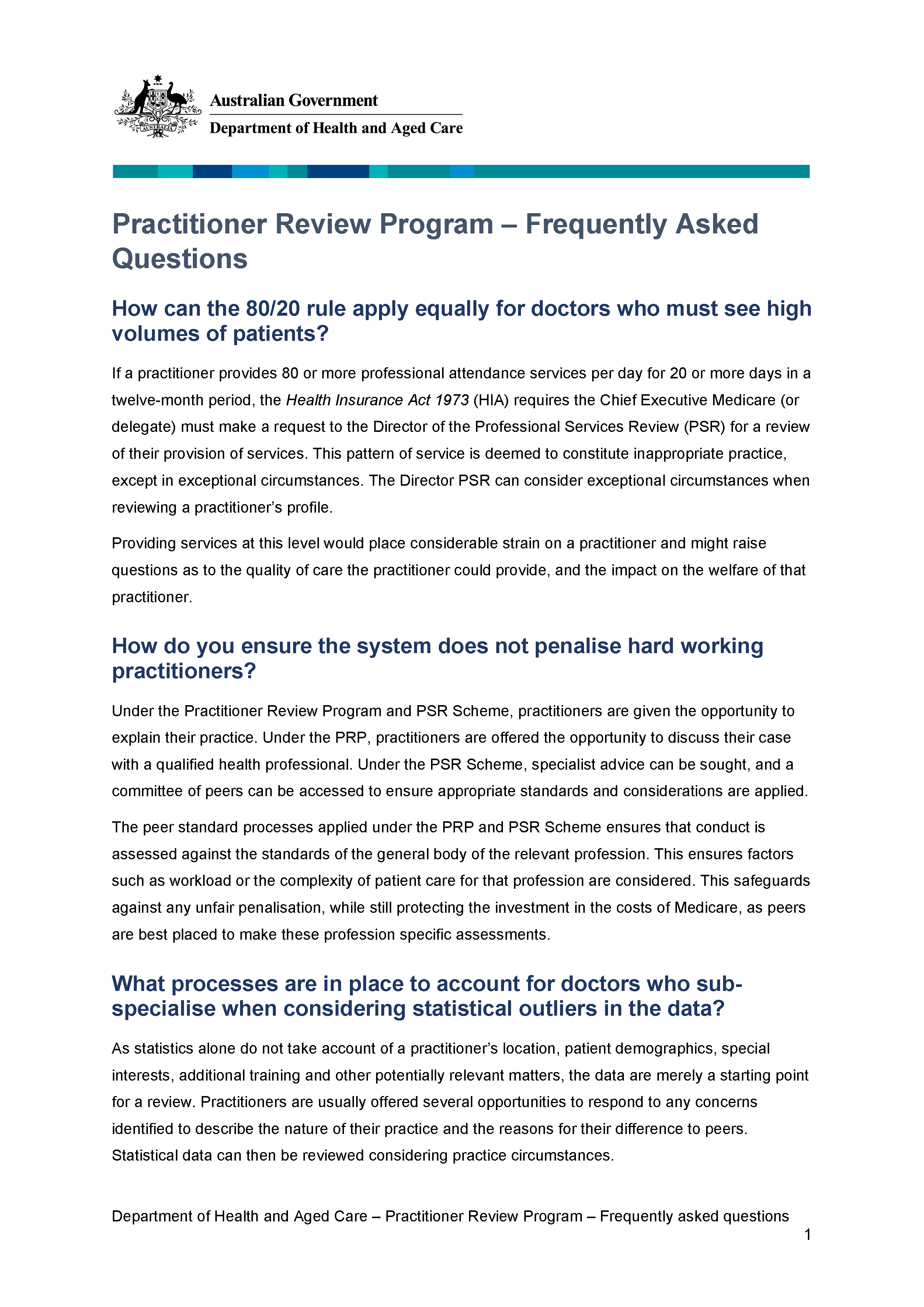
Practitioner Review Program – Frequently asked questions
Frequently asked questions about the Practitioner Review Program. -
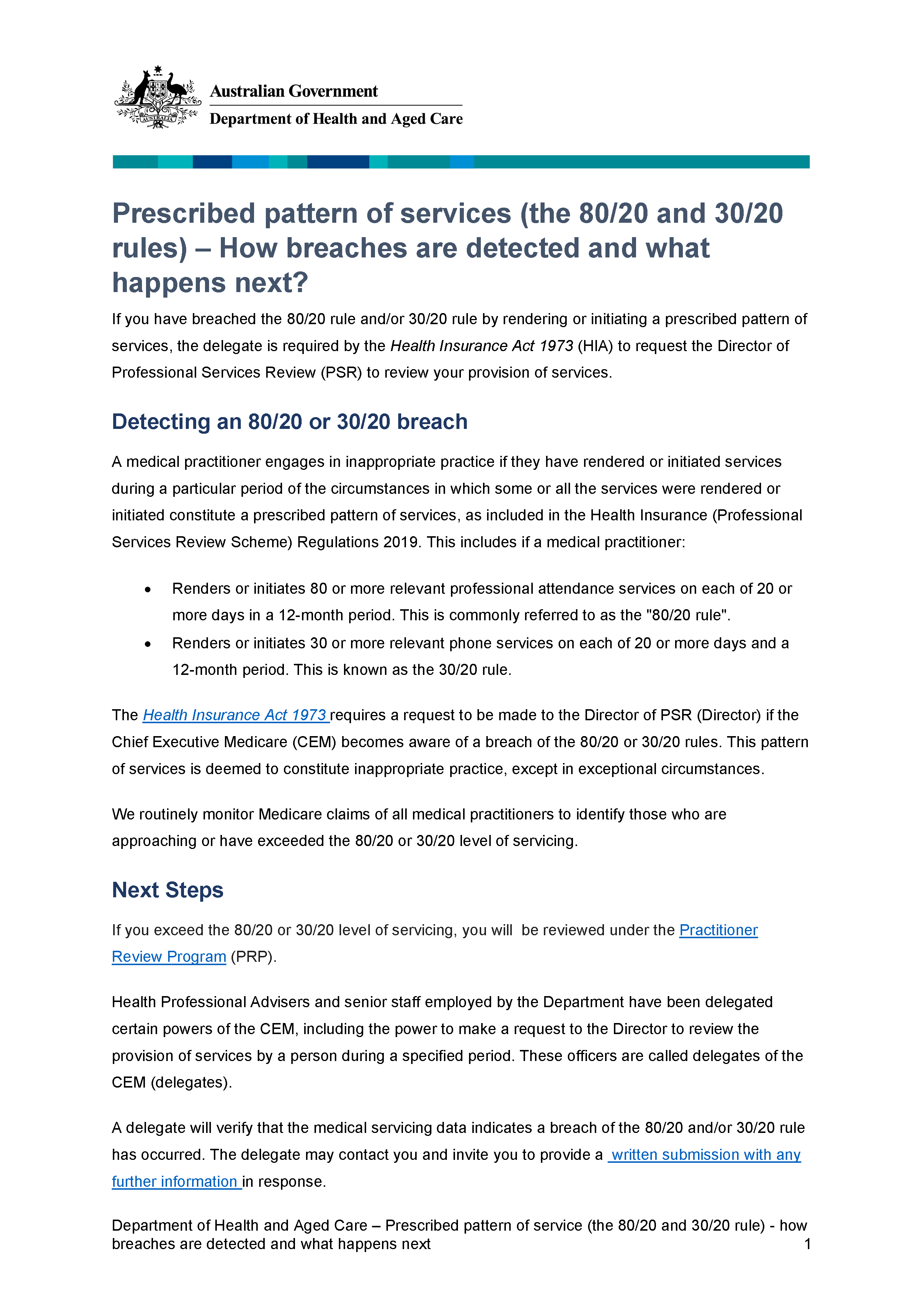
Prescribed pattern of services – How breaches are detected and what happens next?
Information about how a breach of the prescribed pattern of services (the 80/20 and 30/20 rules) is detected and the next steps when an 80/20 or 30/20 breach is found. -
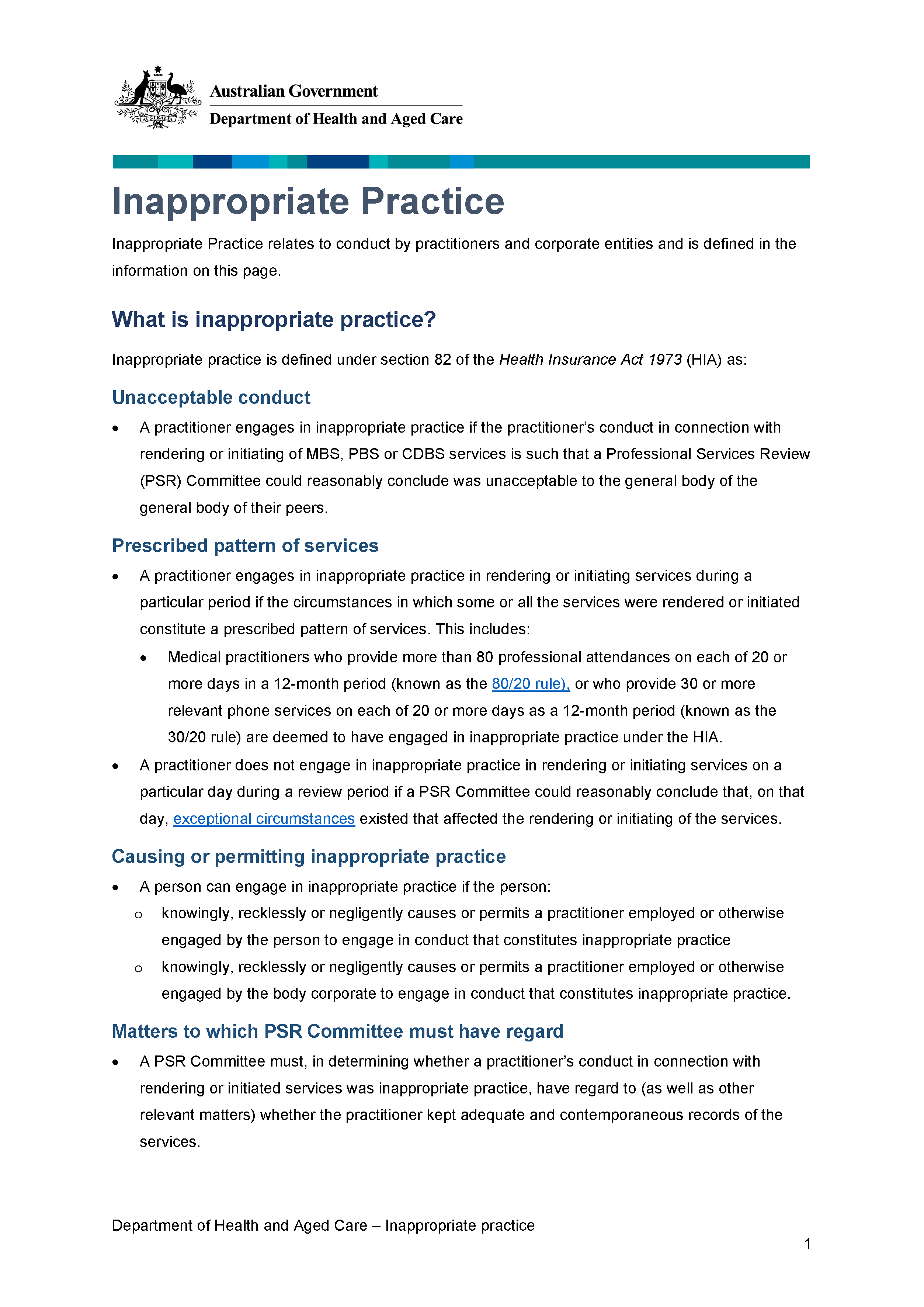
Inappropriate practice
Information on the definition of inappropriate practice and how it applies to practitioners and corporate entities. -
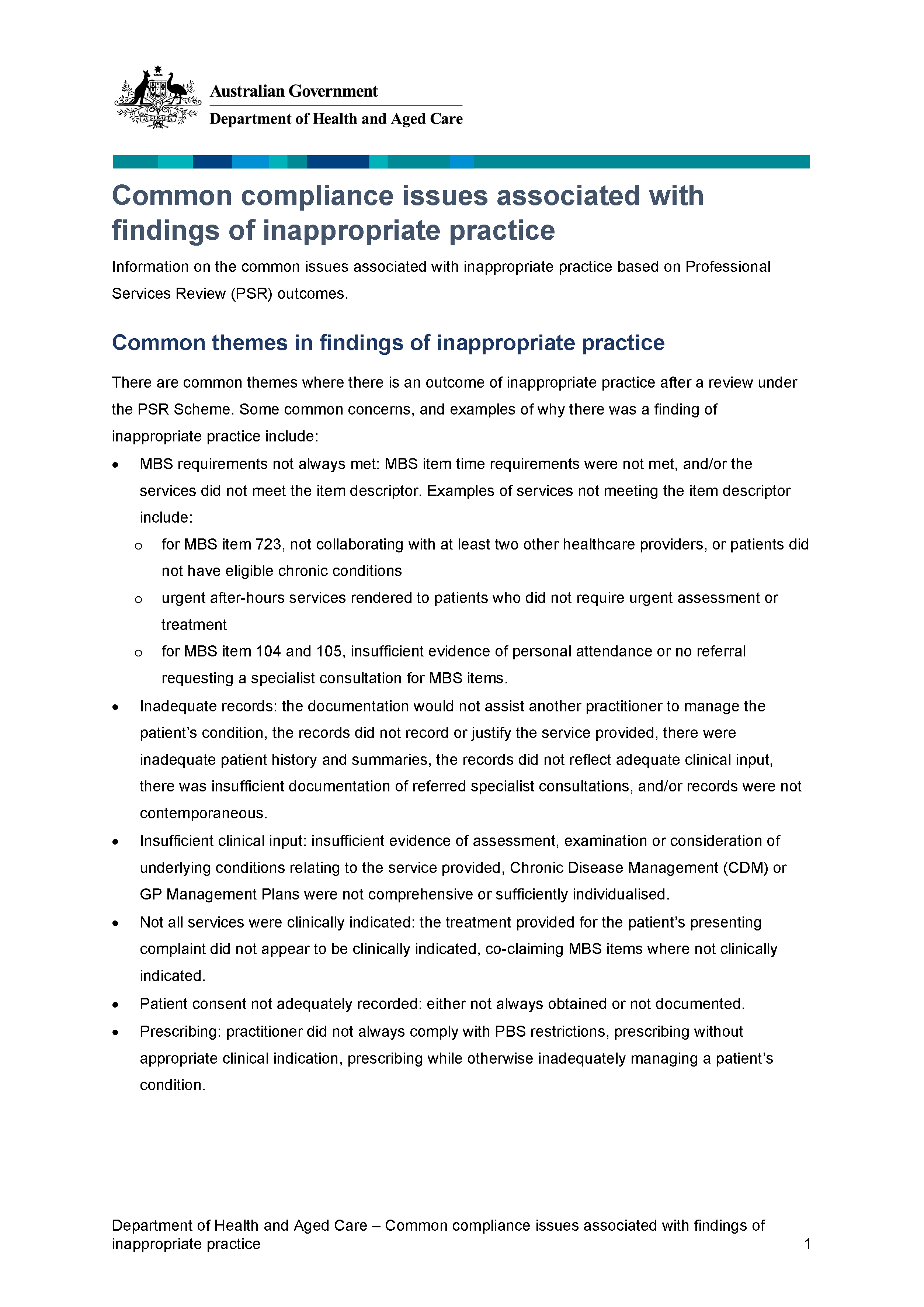
Common compliance issues associated with findings of inappropriate practice
Information on the common compliance issues associated with inappropriate practice based on Professional Services Review outcomes. -
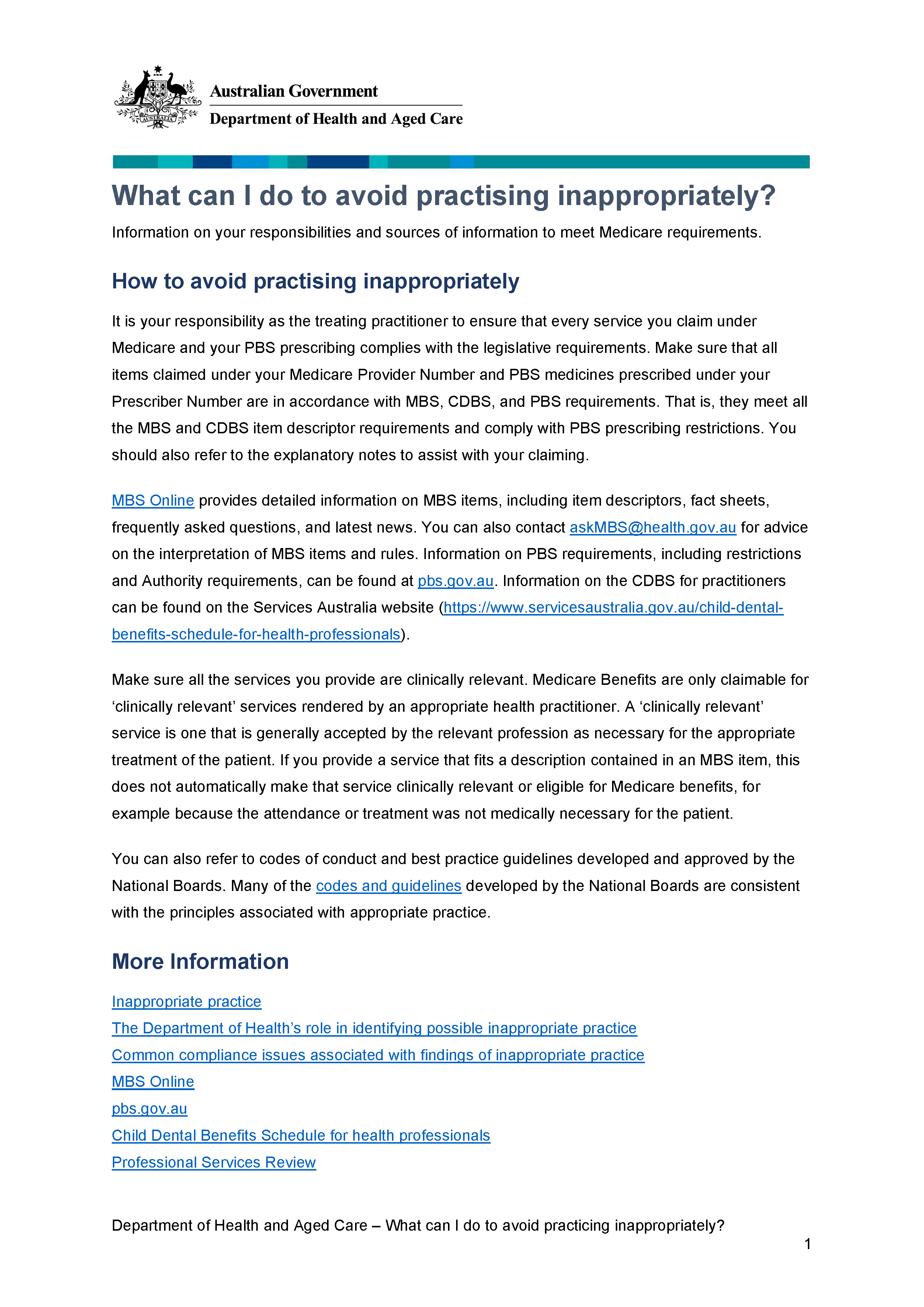
What can I do to avoid practicing inappropriately?
Information on how to avoid practicing inappropriately, your responsibilities and sources of information to meet Medicare requirements. -
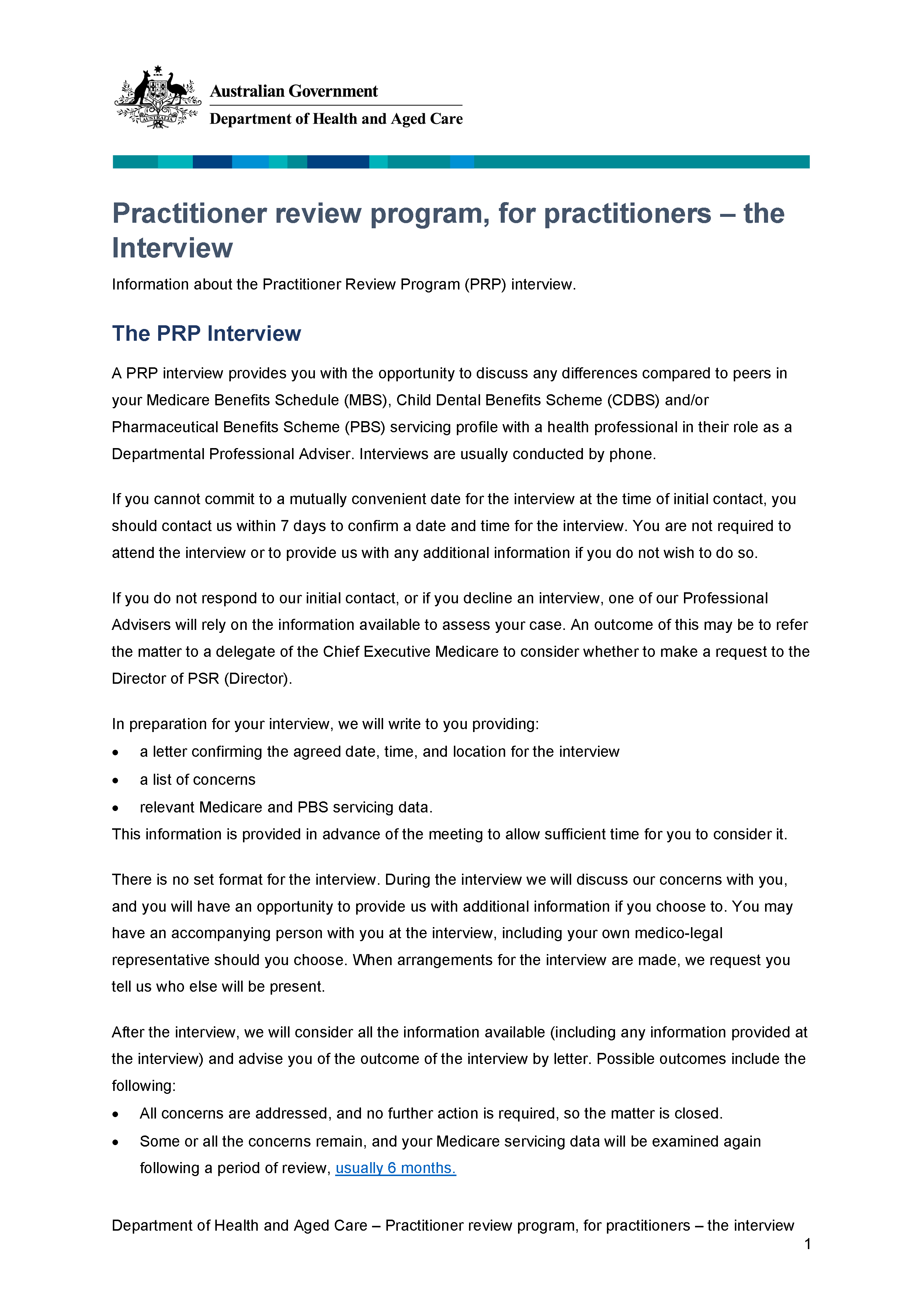
PRP for practitioners – The interview
Information about the Practitioner Review Program (PRP) interview -
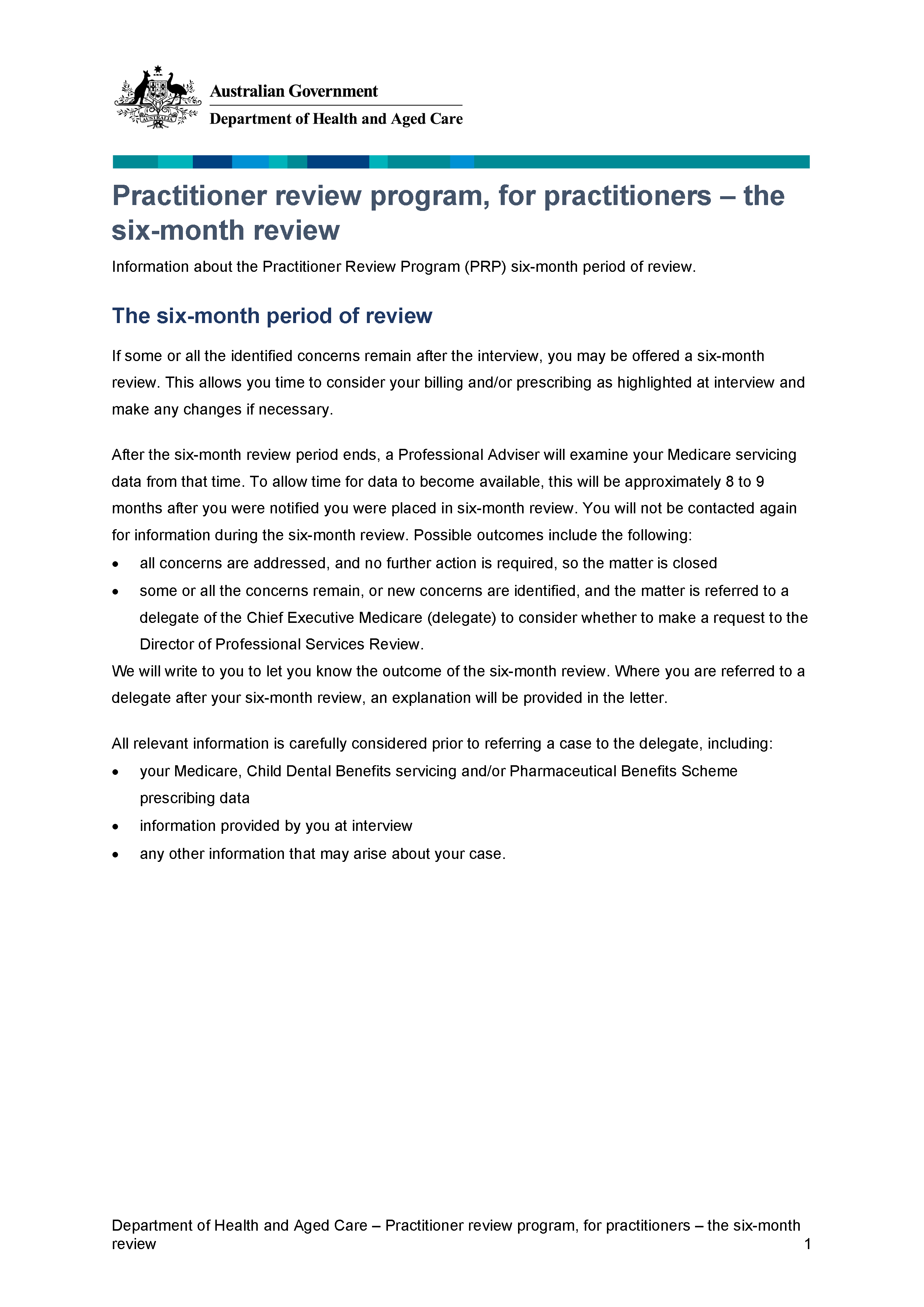
PRP for practitioners – The 6-month review
Information about the Practitioner Review Program (PRP) 6-month period of review. -
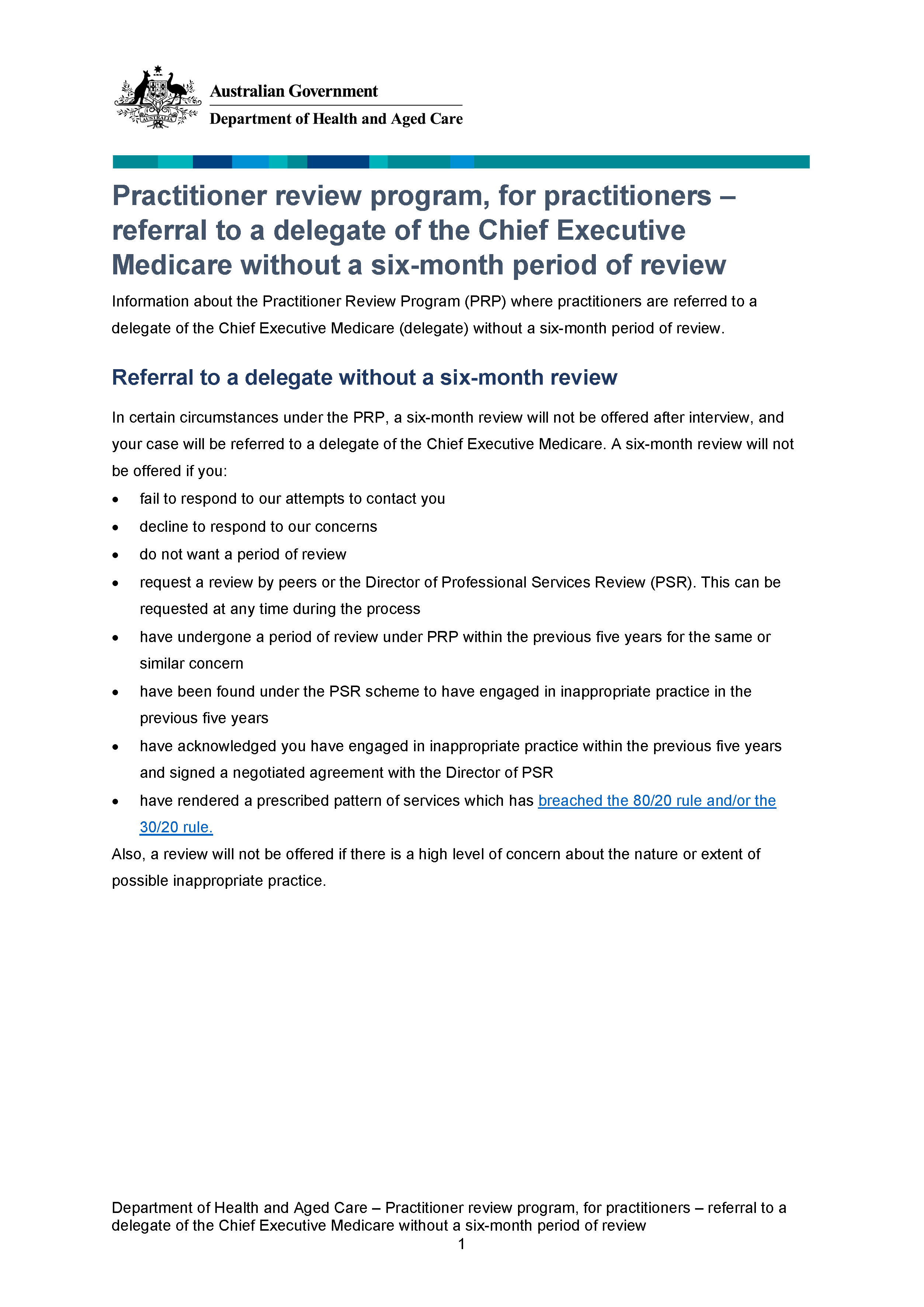
PRP for practitioners – Referral to the delegate without a 6-month review
Information about the Practitioner Review Program (PRP) where practitioners are referred to a delegate of the Chief Executive Medicare (delegate) after an interview without a six-month period of review. -
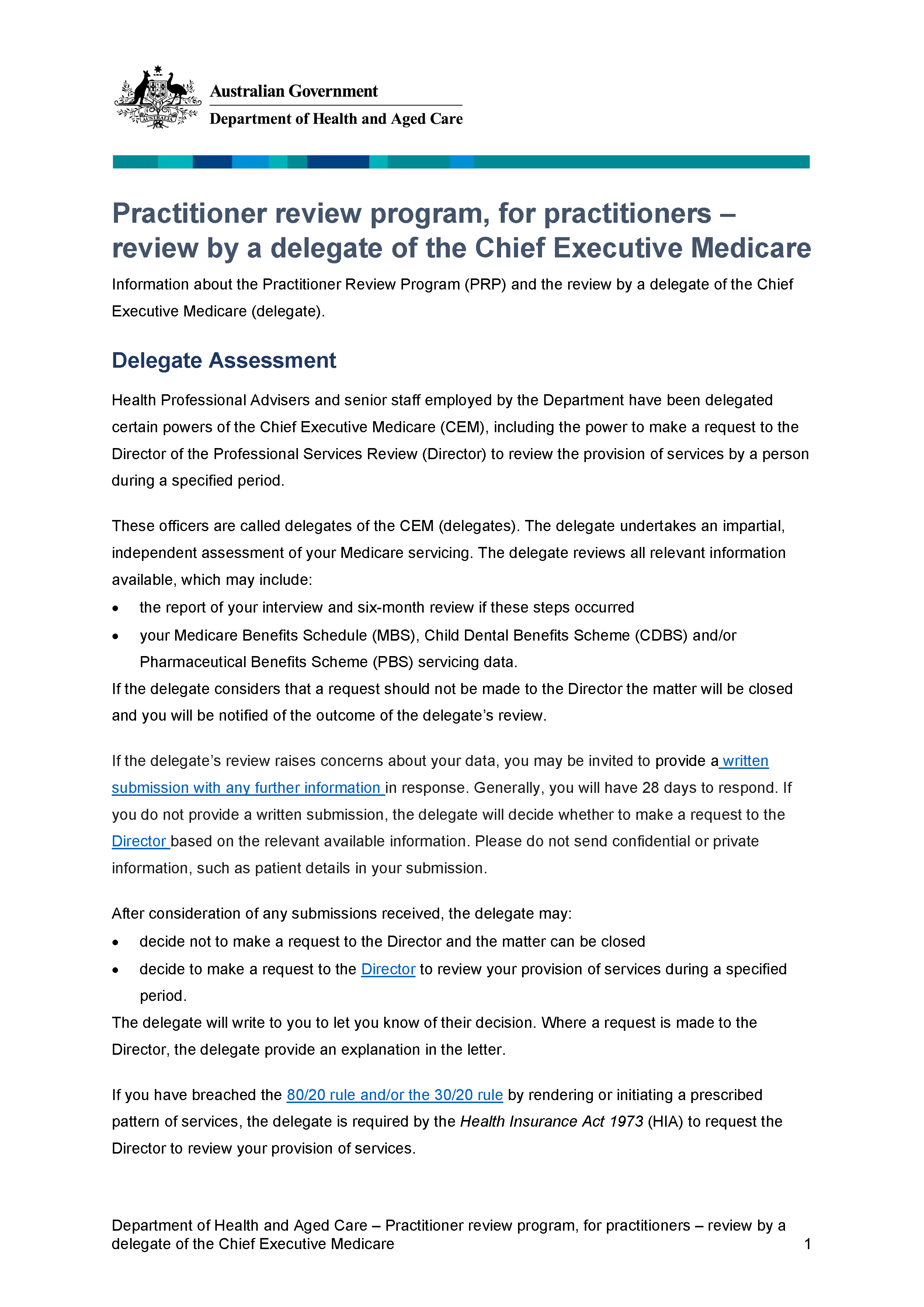
PRP for practitioners – Delegate assessment
Information about the Practitioner Review Program (PRP) and the review by a delegate of the Chief Executive Medicare (delegate). -
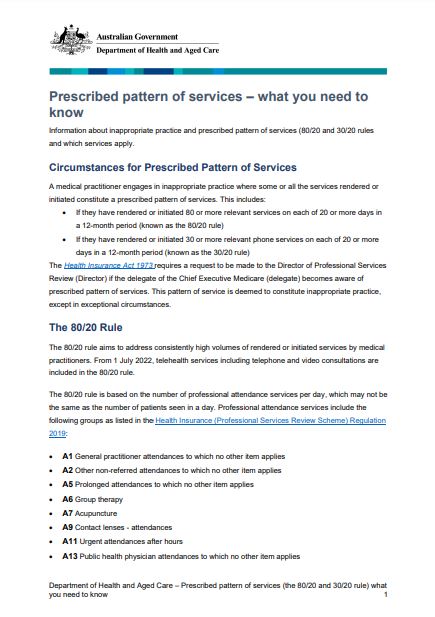
Prescribed pattern of services – What you need to know
Information about inappropriate practice and prescribed pattern of services (the 80/20 and 30/20 rules) and which professional attendance services apply. -
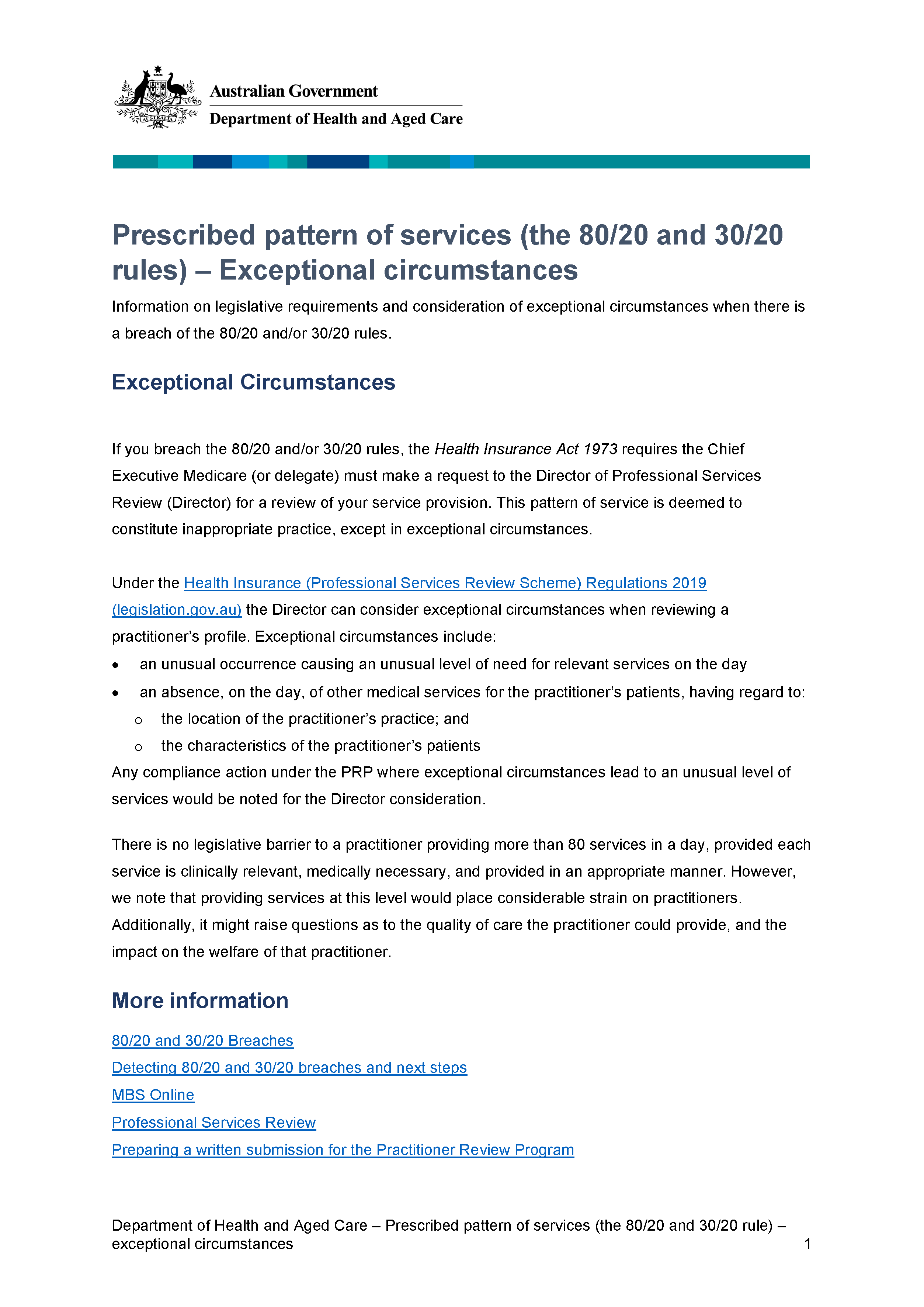
Prescribed pattern of services – Exceptional circumstances
Information on legislative requirements and considerations when there is a breach of the prescribed pattern of services (the 80/20 and 30/20 rules) -
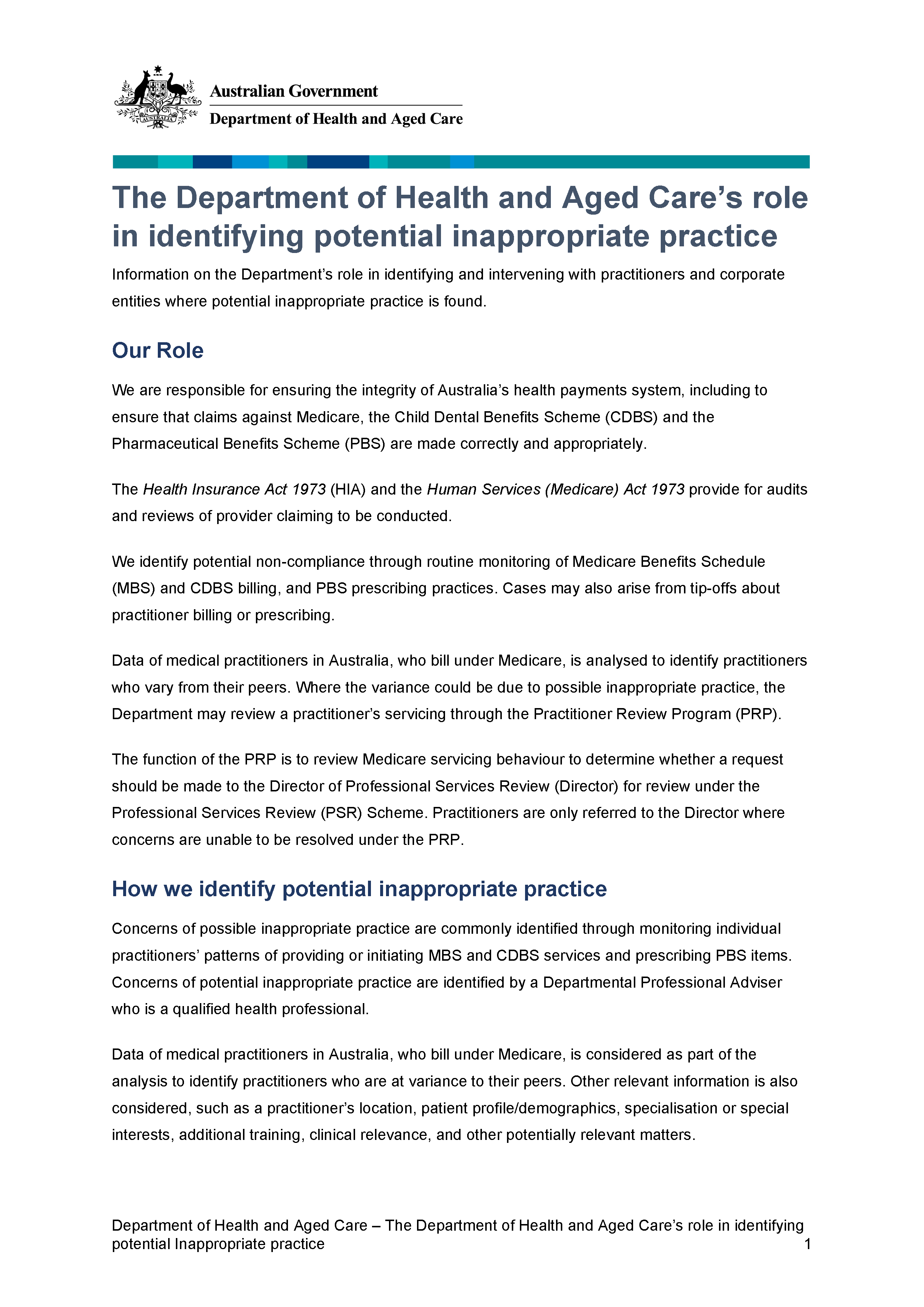
Our role in identifying potential inappropriate practice
Information on the department’s role in identifying and intervening with practitioners and corporate entities where potential inappropriate is found. -
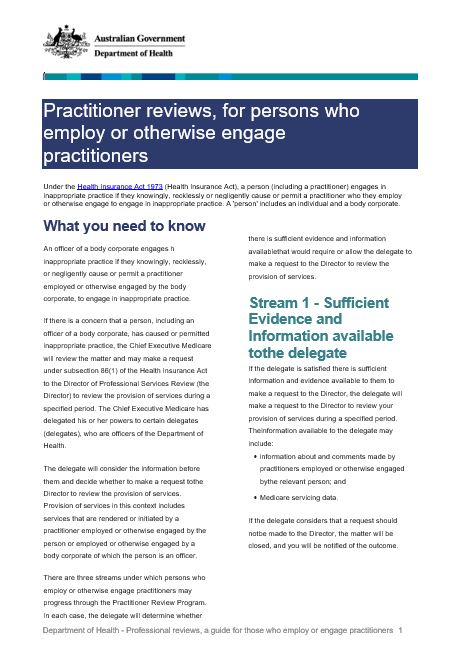
Practitioner review – a guide for those who employ or engage practitioners
Under the Health Insurance Act 1973 (Health Insurance Act), a person (including a practitioner) engages in inappropriate practice if they knowingly, recklessly or negligently cause or permit a practitioner who they employ or otherwise engage to engage in inappropriate practice. -
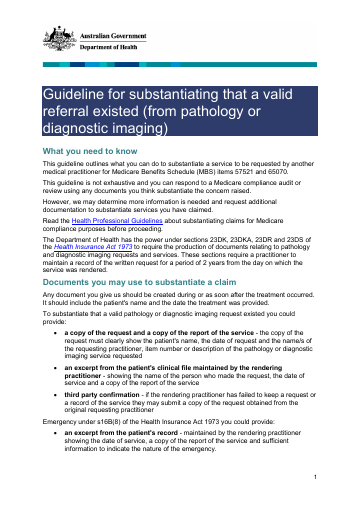
Guideline for substantiating that a valid referral existed (from pathology or diagnostic imaging)
This guideline outlines what you can do to substantiate a service to be requested by another medical practitioner for Medicare Benefits Schedule (MBS) items 57521 and 65070. -
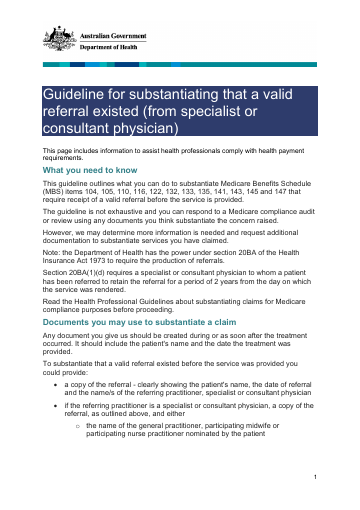
Guideline for substantiating that a valid referral existed (from specialist or consultant physician)
This guideline outlines what you can do to substantiate Medicare Benefits Schedule (MBS) items 104, 105, 110, 116, 122, 132, 133, 135, 141, 143, 145 and 147 that require receipt of a valid referral before the service is provided. -
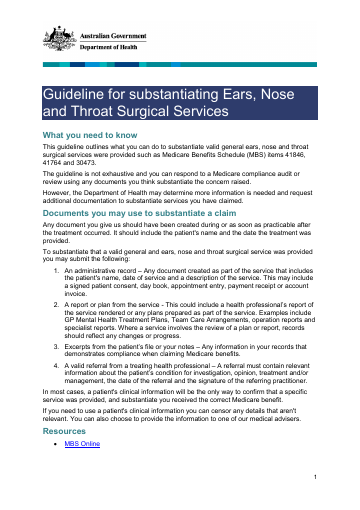
Guideline for substantiating Ears, Nose and Throat Surgical Services
This guideline outlines what you can do to substantiate valid general ears, nose and throat surgical services were provided such as Medicare Benefits Schedule (MBS) items 41846, 41764 and 30473. -
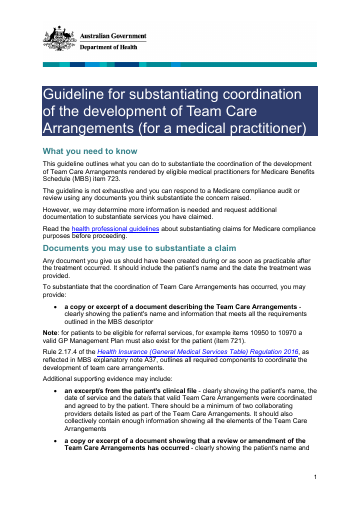
Guideline for substantiating coordination of the development of Team Care Arrangements (for a medical practitioner)
This guideline outlines what you can do to substantiate the coordination of the development of Team Care Arrangements rendered by eligible medical practitioners for Medicare Benefits Schedule (MBS) item 723. -
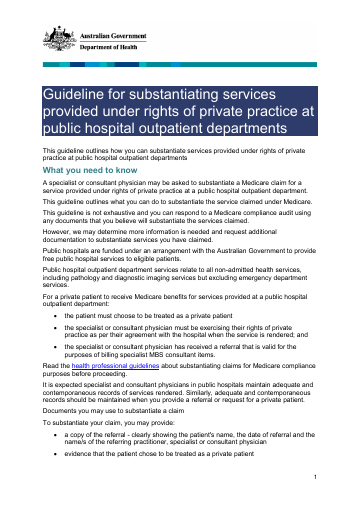
Guideline for substantiating services provided under rights of private practice at public hospital outpatient departments
This guideline outlines how you can substantiate services provided under rights of private practice at public hospital outpatient departments.
